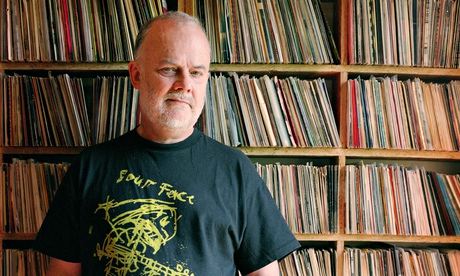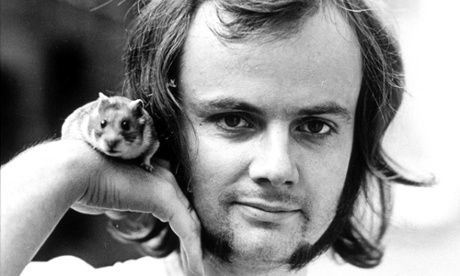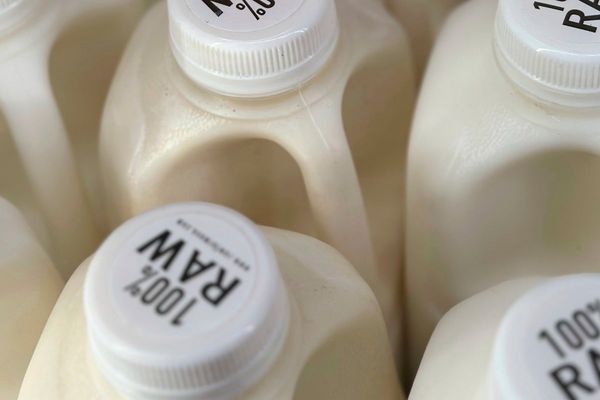
More than 10 years after his untimely death, John Peel – as an idea, a symbol, a cluster of fonder-than-fond memories, perhaps a reproachful ghost – still exerts a spell over the present. Countless websites and online forums are devoted to uploading and distributing home-taped recordings of his shows. BBC Radio 6 Music has inaugurated an annual lecture in his name. The Glastonbury festival has a John Peel stage. There’s a John Peel Centre for Creative Arts in Stowmarket. In 2012, the BBC, which never seemed sure whether he was a marvel or a menace, renamed a wing of Broadcasting House after him. Given that the man claimed – not always definitively – to be more interested in the future than in the past, are these tributes in actual fact betrayals? Might they be efforts to cover a cultural wound whose severity cannot be fully confronted?
For David Cavanagh, Peel was a curator who turned the airwaves into the boldest public gallery and most liberated pedagogic space imaginable. He was an artist who “displayed a form of erudite, neo-anarchic, abstract expressionist fearlessness”. The pirate DJ who went legit without allowing himself to become tamed; a significant player in the late-60s counterculture who held on to many of its values but also – sometimes to the chagrin of his admirers – championed sounds they found alien or even reprehensible; the midwife to countless outsider artists (David Bowie, Pink Floyd, Genesis) who later became globe-engirdling rock behemoths, Peel saw himself as a Reithian. He didn’t believe in streaming culture’s narrow-casting and privatisation of pop, or that the public knows what it wants, and certainly not the Conservative party’s mantra that pop music broadcasting is best served by market forces.
Good Night and Good Riddance is a bravura work of close listening, scholarship and writing. It’s a chronological history of 265 programmes that Peel presented between 1967 and 2003 that begins with his show for Radio London called The Perfumed Garden. In those days he would recite poems in Latin by the Roman poet Catullus, give up reading the weather halfway through because he found the idea of rain upsetting, and prefaced blues songs by inviting listeners to go for a wander in Hyde Park “straight into all those trees that are whispering ageless, unheard-of secrets to one another and exchanging dark green words of love”.
Cavanagh, whose history of Creation Records, My Magpie Eyes are Hungry for the Prize (2000), remains the greatest book ever written on British independent music, is no hagiographer. He discusses the ways in which – whether by modulating his accent or incorporating top 40 artists – Peel would try not to appear anachronistic. He’s especially alert – as he should be after the horrors of recent scandals – to how, even into the 80s, sexist and even misogynist lyrics would fail to be noticed, far less called out. He also points to the irony of Peel refusing to announce the name of Rapeman’s Inki’s Butt Crack, but letting pass the graphic scatologies of various hip‑hop outfits.

Most acutely, he picks up on Peel’s tendency to identify with bands such as the Higsons, the Wedding Present, Mega City Four – “unassuming, self-deprecating, pleasant if approached… the sort of bands he wouldn’t mind going for a biryani with”. He was allergic to anything that bore the aroma of the arty or overreaching. He didn’t have much time for Felt, for Francophile provocateur Momus, for the Cocteau Twins after their lyrics became indecipherable.
Peel tended to speak of his beloved Mark E Smith as he might a pet labrador. He played a song by the farouche Dead Can Dance and followed it up by saying: “Well, that one gets the thumbs-up from our man on the terraces with the runny nose and the bottle of beaujolais nouveau.” Even as a devoted teenage listener I recall finding this kind of regular-bloke banter a little disappointing. It seemed to defang the music, to apologise for its mysteries, to limit its potential as an imaginative gateway. Radical pop, I suspected, deserved a more radical discourse.
Peel was more liberal than revolutionary, but compared with the bromides and giggle-fests of most of his Radio 1 colleagues that still counted for a lot. Many were the nights when the music he was broadcasting – gentle, ferocious, perplexing – offered a form of sonic citizenship: unity through diversity, juxtaposition and newness rather than comforting old standards. “No band is so misbegotten that it can’t find acceptance on the John Peel show,” Cavanagh writes. His description of the late-1970s Mancunian band Elti-fits – “full of sounds and attitudes – the aggressive girl singer with the atonal voice; the spidery guitar figures; the pathological need to unbalance” – brilliantly captures the mood spaces Peel’s programmes often both tapped into and carved out.
But Peel wasn’t a social worker or a cultural theorist. One of the joys of Good Night and Good Riddance is being reminded of his fondness for the seemingly obtuse and infantile - I Got Rabies by Brighton’s Johnnie and the Lubes (sample lyric: “We got rabies/ We got rabies/ We’re gonna give everybody rabies”); Bobby Made Me Eat a Frog by Happy Flowers, a Charlottesville, Virginia duo whose members went by the name of Mr Anus and Mr Horribly Charred Infant.
At a time of sonic dams and levees, when most recorded music would never be heard by radio listeners, Peel was a deliriously permissive gatekeeper. Now music has been unstoppered and set free. It is ubiquitous, so much so that it often feels unnecessary to listen to it. Were he alive today, would Peel be a mordant minimalist rather than an avuncular maximalist?
Goodnight and Good Riddance by David Cavanagh (Faber & Faber, £20). To order a copy for £16, go to bookshop.theguardian.com or call 0330 333 6846. Free UK p&p over £10, online orders only. Phone orders min. p&p of £1.99.







